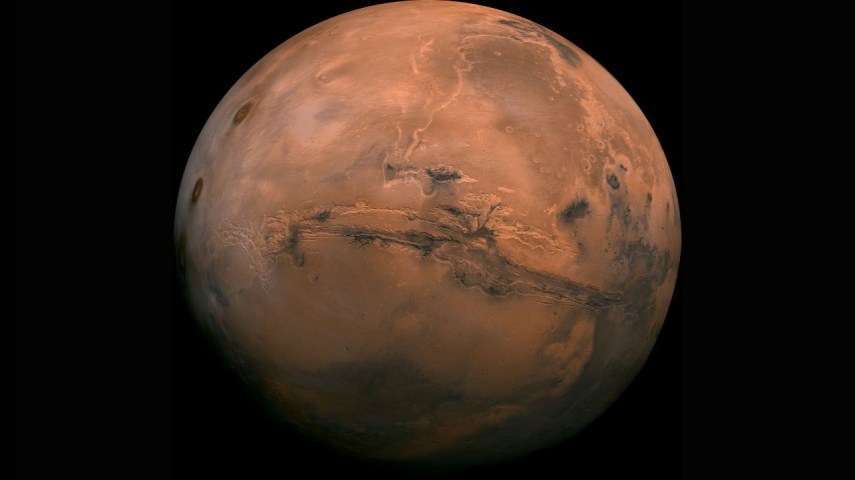Mars driving 'giant whirlpools' in Earth's deep oceans; Study reveals
According to new research, Mars may be causing massive whirlpools in Earth's deep oceans. Scientists discovered this surprising connection while studying rocks and sediments on the ocean floor.

-
New research reveals surprising link between Mars and Earth's deep ocean currents
-
Scientists find that Mars may be driving the massive whirlpools in Earth's oceans
Scientists have discovered a remarkable link between Mars and Earth's deep oceans, implying that the red planet may be driving 'giant whirlpools' beneath the waves, according to a new study as per CNN.
Unexpected discoveries
In a groundbreaking study published in the journal Nature Communications, researchers reveal that Mars, despite being approximately 140 million miles away, may play an important role in shaping Earth's deep-sea currents.
Adriana Dutkiewicz, co-author of the study and a sedimentologist at the University of Sydney, was surprised by the findings, saying, "They are linked to cycles in the interactions of Mars and Earth orbiting the Sun."
The study is the first to connect the two planets' orbits, highlighting a phenomenon known as "resonance." The gravitational interaction between Mars and Earth changes the shape of their orbits and affects their distance from the sun. As a result, Earth experiences periods of increased solar energy, which causes warmer climates and stronger ocean currents.
Implications for climate and ocean dynamics
According to Dietmar Müller, a study co-author and professor of geophysics at the University of Sydney, these findings shed light on natural climate cycles that have lasted 2.4 million years. While these cycles have an impact on ocean currents and warming trends, they are not the same as human-caused rapid climate change.
According to the study, these deep-sea currents are "giant whirlpools," capable of reaching the ocean floor and reshaping underwater landscapes. Scientists discovered these powerful eddies by analyzing sediment cores from hundreds of deep-sea sites.
Insights for future climate modeling
Joel Hirschi, associate head of marine systems modeling at the UK's National Oceanography Centre, praised the study's methodology and suggested a link between Mars and the observed 2.4 million-year cycle in sea sediments. However, he cautioned against drawing speculative conclusions about the impact of these eddies on ocean circulation in warmer regions.
Even though there is still much we don't know about predicting the future climate, the scientists who conducted the study believe their research is critical. They believe that by studying ancient rocks and sediments, they can learn more about the Earth's oceans and weather. This could help us understand what might happen in the future and how to prepare for it.
ALSO READ: TikTok ban in US: Everything about bill that will decide fate of social media giant in the country





 JOIN OUR WHATSAPP CHANNEL
JOIN OUR WHATSAPP CHANNEL




































































































